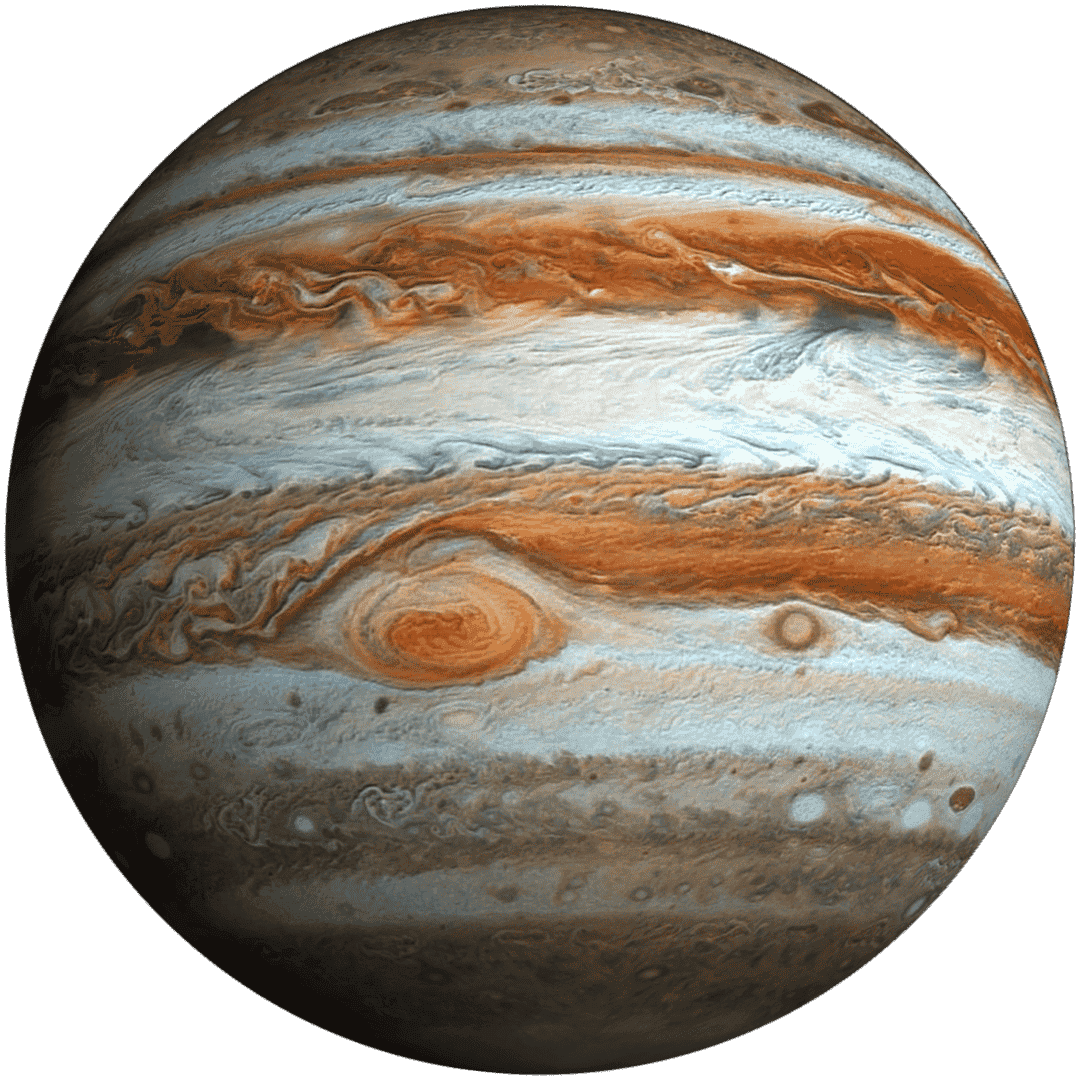Jupiter
King of the Gods
The largest planet in our solar system, a gas giant with a Great Red Spot

Composition
Mostly hydrogen and helium with a possible rocky core
Atmosphere
89% hydrogen, 10% helium, 1% other compounds
Cosmic Portrait
Jupiter: The Giant Guardian of the Solar System
Jupiter is the largest planet in our solar system, a true gas giant whose mass is greater than all the other planets combined. With its swirling bands of clouds and the iconic Great Red Spot—a gigantic storm larger than Earth—Jupiter is a planet of extremes and superlatives.
- Diameter: 139,820 km, making it 11 times wider than Earth.
- Moons: Jupiter commands a family of at least 95 moons, including the four Galilean moons: Io, Europa, Ganymede, and Callisto.
- Atmosphere: Composed mainly of hydrogen and helium, with colorful cloud bands created by powerful jet streams.
The Great Red Spot & Dynamic Weather
The Great Red Spot is a massive, persistent anticyclonic storm that has raged for centuries. Jupiter's atmosphere is a turbulent realm of storms, lightning, and auroras far more powerful than those on Earth. Its rapid rotation—just under 10 hours—causes the planet to bulge at the equator and flattens at the poles.
Jupiter's Role in the Solar System
Jupiter acts as a cosmic shield, its immense gravity attracting and capturing asteroids and comets that might otherwise threaten the inner planets. This protective role has earned it the nickname the solar system's vacuum cleaner.
Galilean Moons: Worlds of Wonder
- Io: The most volcanically active body in the solar system, with hundreds of erupting volcanoes.
- Europa: An icy world believed to harbor a subsurface ocean, making it a prime candidate in the search for extraterrestrial life.
- Ganymede: The largest moon in the solar system, even bigger than Mercury, with its own magnetic field.
- Callisto: A heavily cratered, ancient moon with a mysterious, icy surface.
Jupiter is a majestic, turbulent giant whose scale and power defy earthly comprehension. Its presence shapes the architecture of our solar system and inspires astronomers and dreamers alike.
From its dazzling auroras to its complex system of rings and moons, Jupiter remains a focus of scientific exploration and wonder. Future missions, such as NASA's Europa Clipper, aim to unlock more secrets about this gas giant and its fascinating satellites.
Fun Fact
Jupiter acts like a cosmic vacuum cleaner, protecting Earth by attracting asteroids and comets with its massive gravity!